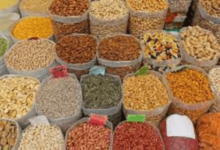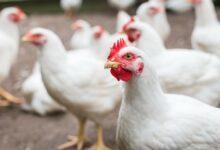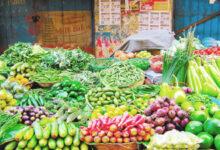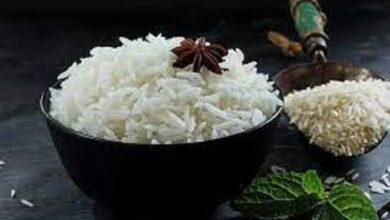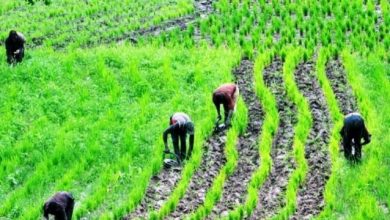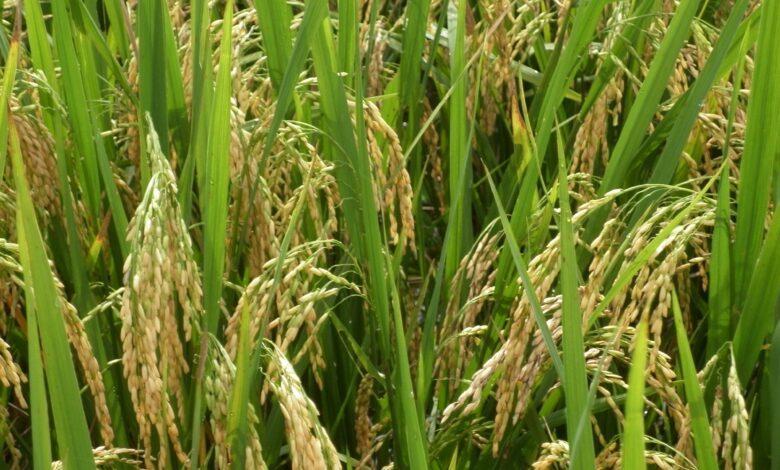
Factors Affecting Distribution Of Crops In Nigeria
Factors Affecting Distribution Of Crops In Nigeria – Nigeria is a major agricultural producer in Africa, with a wide variety of crops grown throughout the country. Some of the most important crops include cassava, yam, maize, rice, sorghum, millet, plantains, and cocoyam. The country is also a major producer of cash crops such as cocoa, rubber, and palm oil.
The distribution of these crops varies depending on factors such as climate, soil, and topography. For example, cassava is widely grown in the southern and eastern regions of the country, while yam is primarily grown in the west. Maize is grown in most parts of the country but is particularly important in the northern regions. Rice is also widely grown, with most production taking place in the southern and coastal regions.
👉 Relocate to Canada Today!
Live, Study and Work in Canada. No Payment is Required! Hurry Now click here to Apply >> Immigrate to CanadaRead Also: Factors Affecting Education in Nigeria
What is a Crop?
A crop is a plant or group of plants that are grown and harvested for food, fuel, or other commercial use. Examples of crops include grains (such as wheat and corn), fruits (such as apples and oranges), vegetables (such as carrots and tomatoes), and legumes (such as beans and peas).
Types of Crops
There are many types of crops, but some of the most common include:
- Cereal Crops: These include grains such as wheat, rice, corn, and barley. They are typically grown for food and feed.
- Root Crops: These include vegetables such as potatoes, carrots, and turnips. They are typically grown for food.NYSC Portal
- Legumes: These include beans, peas, and lentils. They are typically grown for food and feed, and also for their nitrogen-fixing properties.
- Fruits and Berries: These include apples, strawberries, and grapes. They are typically grown for food and juice.Factors Affecting Distribution Of Crops In Nigeria
- Oil Crops: These include oilseed crops such as soybeans, sunflowers, and canola. They are typically grown for their oil content, which is used for cooking and other industrial purposes.
- Fiber Crops: These include cotton, hemp, and flax. They are typically grown for their fibers, which are used for textiles and other industrial purposes.InformationGuideNigeria
- Forage Crops: These include grasses and clovers, which are grown for animal feed.
- Ornamental Crops: These include flowers and ornamental plants, which are grown for their beauty and aesthetic value.
Read Also: 10 Factors Affecting Immunization In Nigeria
What is the Distribution of Crops?
The distribution of crops refers to the geographical and environmental factors that determine where and how different types of crops are grown. Factors such as climate, soil type, and water availability all play a role in determining which crops are suitable for a particular area. Additionally, cultural and economic factors can also influence the distribution of crops, as certain crops may be more popular or profitable in certain regions.
Read Also: 10 Factors Affecting Labour Force
The Impact of Distribution of Crops and the Nigerian Society
Crops have been cultivated in Nigeria for thousands of years, with evidence of yam cultivation dating back to the 9th century. The main crops are grown in Nigeria historically have been yam, cassava, millet, and sorghum, with these crops being grown in different regions depending on the local climate and soil conditions. During the colonial period, European powers introduced new crops such as cocoa, rubber, and palm oil, which were grown primarily for export. In the post-colonial period, Nigeria has also seen an increase in the cultivation of other crops such as rice, maize, and soybeans.JAMB Portal
Factors Affecting the Distribution of Crops in Nigeria
Several factors affect the distribution of crops in Nigeria, including:
👉 Relocate to Canada Today!
Live, Study and Work in Canada. No Payment is Required! Hurry Now click here to Apply >> Immigrate to Canada- Climate: Nigeria has a tropical climate, which is well-suited for the cultivation of crops such as cassava, yam, and oil palm.200 Romantic Love Message
- Soil: The soil in Nigeria is fertile, but certain regions are better suited for certain crops. For example, the alluvial soils of the Niger Delta are well-suited for oil palm cultivation, while the sandy soils of the northern regions are better for sorghum and millet.
- Topography: Nigeria’s varied topography, including coastal regions, rainforests, and savannas, creates different microclimates that are conducive to growing different types of crops.
- Water availability: The availability of water is a major factor in crop distribution. In Nigeria, crops that require a lot of water, such as rice and sugarcane, are primarily grown in regions with high rainfall or irrigation.
- Economic and Social Factors: Economic and social factors also play a role in the distribution of crops in Nigeria. For example, cash crops such as cocoa and rubber are grown in regions where there is a market demand for them, while subsistence crops such as yam and cassava are grown primarily for local consumption.105 Good Morning Love Messages
- Government Policies: Government policies on agriculture, such as subsidies, extension services, and infrastructure development also play a role in the distribution of crops in Nigeria.
- Pest and Disease: The prevalence of pests and diseases can greatly affect crop distribution. For example, the spread of the cassava mosaic virus in the late 2000s led to a decline in cassava production in Nigeria.
- Access to Markets: Access to markets can greatly affect crop distribution. Crops that are in high demand and can be sold at a good price are more likely to be grown in regions where farmers have easy access to markets.
- Technology: Advancements in agricultural technology, such as improved seeds, can greatly affect crop distribution. For example, the introduction of improved varieties of rice has led to an increase in rice production in Nigeria.
- Labour Availability: availability of labor is an important factor for crop distribution. Crops that are labor intensive are more likely to be grown in regions where labor is readily available.
Read Also: 10 Factors Affecting Leadership in Nigeria
Conclusion
Nigeria is a country with a diverse climate, which allows for the cultivation of a wide range of crops. The main crops grown in Nigeria include cassava, yam, rice, maize, and sorghum. However, the distribution of these crops is not even across the country, with certain regions specializing in the cultivation of specific crops.
Read Also: 10 Factors Affecting Leadership in Nigeria
For example, the southern regions of Nigeria are known for their high production of oil palm, while the northern regions are known for their production of millet and sorghum. Additionally, Nigeria also exports a significant amount of cocoa, rubber, and palm oil. There is a need for improvement in the area of agricultural productivity and to increase the yield of crops which will increase the economic growth and food security in the country.
Check JAMB Result
Check and Confirm: How much is Dollar to Naira
